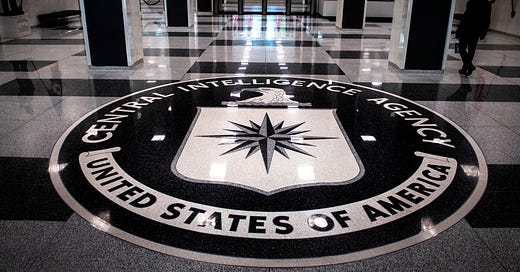Is Politicisation of Intelligence Unavoidable?
To determine whether politicisation of intelligence is unavoidable, it is essential to consider the interplay between the inherent characteristics of intelligence work, the political context in which it operates, and the human factors involved.
1. The Nature of Intelligence Work
Intelligence inherently involves uncertainty and interpretation. Analysts must make judgments based on incomplete or ambiguous information, and these judgments can be influenced by personal or institutional biases. Furthermore, intelligence is often commissioned to address specific policy questions, creating a natural overlap between analysis and politics. This overlap makes some level of politicisation almost inevitable, as intelligence cannot exist in a political vacuum.
2. The Role of Political Leaders
Political leaders have legitimate reasons to engage with intelligence, as it informs decisions on issues ranging from national security to economic policy. However, the boundary between legitimate engagement and undue influence is often blurred. Leaders may genuinely believe that their interpretation of intelligence aligns with national interests, even when it contradicts objective assessments. This dynamic suggests that while overt politicisation can be mitigated, subtle forms may persist.
3. Human Factors
Intelligence analysts and policymakers are not immune to the influence of personal biases, organizational culture, or political considerations. These human factors contribute to the risk of politicisation, particularly in high-stakes scenarios where the consequences of intelligence assessments are far-reaching.
Mitigating Politicisation
While the politicisation of intelligence may not be entirely avoidable, steps can be taken to minimize its impact:
Strengthening Institutional Independence
Intelligence agencies should be granted operational independence from political leadership. This can be achieved through legislative safeguards, oversight mechanisms, and a clear separation between analysis and policy.Promoting Analytical Integrity
Agencies should invest in training programs that emphasize objectivity and critical thinking. Encouraging dissenting views and red-teaming exercises can help counteract groupthink and cognitive biases.Enhancing Oversight and Accountability
Independent oversight bodies, such as parliamentary intelligence committees, can ensure that intelligence processes remain transparent and objective. These bodies can also investigate instances of politicisation and recommend corrective measures.Encouraging Ethical Leadership
Political leaders must recognize the value of objective intelligence and resist the temptation to manipulate it for short-term gains. Cultivating a culture of respect for intelligence professionals can help mitigate top-down politicisation.Leveraging Technology and Data
Advances in data analytics and artificial intelligence can provide more robust and objective methods for intelligence analysis. While these technologies are not immune to bias, they can complement human judgment and reduce the scope for manipulation.Fostering Public Awareness
Educating the public about the role of intelligence and the risks of politicisation can create a demand for accountability. A well-informed public is less likely to accept politicised narratives at face value.
Case Studies
1. The Iraq War (2003)
The politicisation of intelligence in the lead-up to the Iraq War remains one of the most cited examples. The U.S. and U.K. governments presented intelligence on Iraq's alleged WMDs to justify military intervention. Subsequent investigations, including the Chilcot Inquiry, revealed that intelligence had been exaggerated, and alternative assessments were ignored. The fallout from this episode highlighted the dangers of politicisation, including loss of trust in intelligence agencies and long-term geopolitical instability.
2. The Trump Administration and Russian Interference
During the Trump presidency, U.S. intelligence assessments on Russian interference in the 2016 election became a political flashpoint. President Trump publicly criticized intelligence agencies, questioning their findings and accusing them of bias. This episode underscored the challenges of maintaining institutional credibility in a highly polarized political environment.
3. COVID-19 Pandemic
The politicisation of intelligence extended to public health during the COVID-19 pandemic. In several countries, intelligence assessments on the origins of the virus, its spread, and the effectiveness of mitigation measures were subject to political manipulation. This contributed to inconsistent policy responses and public mistrust.
Conclusion
The politicisation of intelligence is a complex and multifaceted issue that stems from the intersection of political objectives, human biases, and the inherent nature of intelligence work. While it may not be entirely avoidable, its impact can be mitigated through institutional safeguards, ethical leadership, and a commitment to analytical integrity. Policymakers and intelligence professionals must navigate the delicate balance between serving national interests and preserving the objectivity of intelligence. In a world where accurate and unbiased intelligence is more critical than ever, addressing the risks of politicisation is a moral and strategic imperative.
SOURCE: Osint





